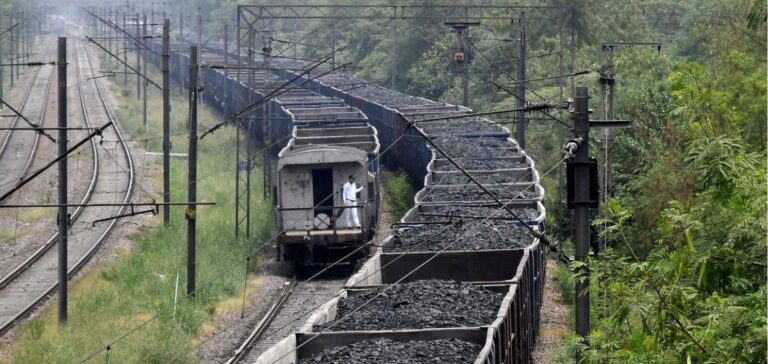Faced with ever-increasing energy demand, India is implementing 38 priority rail projects to optimize coal transport throughout the country.
Overseen by the Ministry of Coal, in close collaboration with the Ministry of Railways, this ambitious program aims to reduce logistics costs, improve supply chain efficiency and enhance energy security.
The strategy is clear: by shortening distances and increasing transport capacity, the government hopes to respond more effectively to the needs of power plants and industries, which are largely dependent on coal as the main source of energy.
Infrastructure improvements in Odisha and Talcher
Two of the most significant projects are concentrated in the state of Odisha, crossing several coal blocks.
These new rail lines are designed to shorten the distance between the Sardega mines and the power plants located in northern India, thereby reducing the costs associated with transporting coal and increasing the speed of delivery.
This infrastructure not only reduces costs, but also makes the supply chain more reliable, essential for maintaining energy production during periods of high demand.
In the Talcher region, another key rail line is being developed to improve coal evacuation to Nagpur and the western regions of India.
This shorter, more direct route significantly reduces logistics costs and facilitates a smoother flow of coal to power plants and industrial users.
These strategic initiatives are crucial to optimizing resource utilization and minimizing supply interruptions.
Increased transport volumes and stronger logistics
The results of these efforts are beginning to show.
Recent data from the Ministry of Coal reveal that coal shipments rose by 8.39% in the April to July period, reaching 343.7 million metric tons.
Of these shipments, Coal India Ltd (CIL), the sector’s major state-owned entity, recorded an increase of 5.02%, reaching 258.8 million metric tons.
Captive mines, which operate on a more flexible basis, saw their shipments jump by 32.4%, reflecting an adaptive response to market needs.
This rise in volumes was facilitated by an increase in the number of rail trains allocated to coal transport.
On average, 323 trainsets per day were used to transport coal to power and industrial plants over the same period, compared with 276 trainsets the previous year.
This increase reflects the optimization of rail capacity, enabling us to better manage logistics flows and minimize bottlenecks in the supply chain.
Reduce costs and adapt to market dynamics
The improvement in rail transport infrastructure is accompanied by a significant reduction in supply costs.
The price of coal delivered in India with a calorific value of 4,200 kcal/kg GAR fell to $66.80/metric ton between April and July, compared with $73.15 the previous year.
This drop in price is directly linked to the improved availability of domestic coal, thus limiting dependence on imports and the risks associated with price fluctuations on international markets.
Coal India Ltd is also adjusting its strategy by now offering power producers, including independent power plants, the possibility of raising coal volumes in excess of their annual contractual allocation.
This flexibility is essential to meet peaks in demand without increasing imports, thus contributing to price stability on the domestic market and more efficient use of domestic resources.
Prospects and challenges for energy security
India’s strategy for improving coal transport logistics focuses on making more efficient use of existing infrastructure and developing new rail capacity.
These projects are crucial to meeting the challenges posed by growing energy demand, while minimizing transport costs and guaranteeing a reliable supply of coal to power plants.
In addition to securing energy supplies, this infrastructure also prepares the country for future fluctuations in demand and potential challenges on the energy market.
India is striving to diversify its strategies to strengthen its logistical capabilities and meet energy needs more efficiently.
The development of rail infrastructure for coal transport, combined with adjustments in the management of coal volumes, demonstrates a proactive and structured approach to meeting the challenges of the energy sector, while maintaining a balance between cost and efficiency.






















